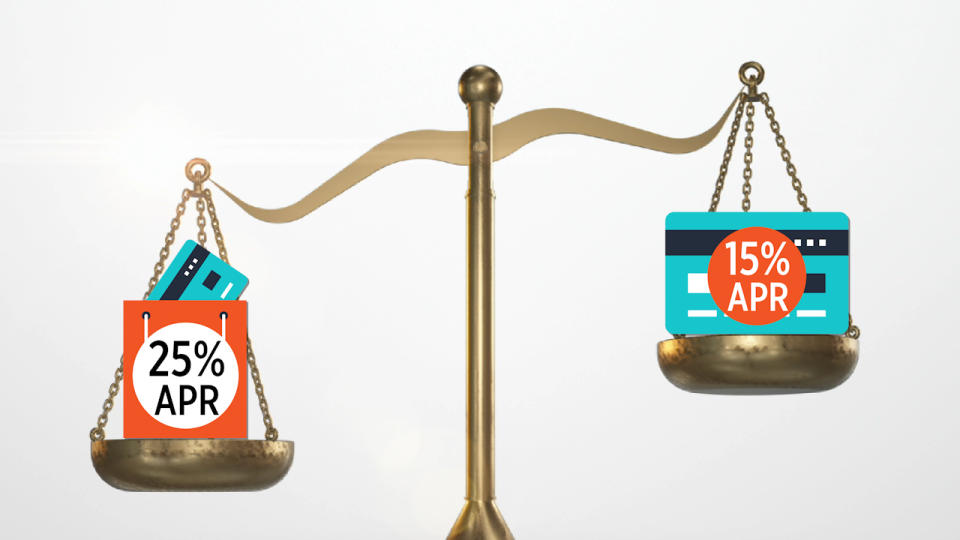Why you should think twice before opening a store credit card
Americans have a serious problem with debt. According to the Federal Reserve, U.S. households have more than $1 trillion in credit card debt, yet, nearly every retail store offers you a credit card at checkout.
Common sense would tell us to just pass on the offer, but stores usually offer some kind of enticing deal, like 20% off of your purchase, which is hard to ignore.
The reality, however, is that despite their perks, these cards can end up costing you more in the long run. Today, we investigate if it’s really a good idea to sign up for a store credit card.
The pros:
Discounts on purchases
In most cases, customers are promised a discount on their current purchase if they open a credit card. For instance, if you spend $500 at Macy’s, and open a credit card, they’ll take 20% off of your first purchase. That will save you $100!
If you are loyal to a brand, you can really see some benefits. Take Gap for example, where cardholders save 10% every time they shop at a Gap store, which adds up if you make frequent visits. You also earn five reward points for every $1 you spend at one of Gaps’ brands (which includes Banana Republic, Old Navy, and Athleta), and those points can be redeemed for cash gift cards.
Perks for cardholders
Some cards also offer:
Interest-free purchases for a limited time
Cash back
Access to exclusive discounts
Receipt-free returns.
The cons:

High interest rates
Store credit cards also have their setbacks. The interest rates are incredibly high. A report from Creditcards.com says that nearly half of retail-branded cards carry an APR of at least 25%. The national average for standard credit cards is only 15%.
Of course, the APR doesn’t really matter if you pay off your balance every month, but four in 10 credit cardholders don’t, which means you’ll likely end up spending a lot of money on interest.
Limited use
You can also hit some roadblocks if you try to use your card at other places. Closed-loop store cards can only be used at the issuing retailer or stores owned by a certain chain. So again, if you’re not a super loyal customer, you probably won’t earn enough rewards and perks to make it worth that high APR.
Safety concerns
And finally, there’s a chance that your store credit card could be less secure. Creditcards.com found that only 43% of store cards come with EMV chips, which are designed to thwart hackers seeking personal information. EMV (which stands for Europay, Mastercard, Visa) create a unique transaction code that cannot be used again. Cards with only a magnetic stripe use the same transaction code over and over, which makes it easier for hackers to skim information.
The Verdict
If you are super loyal to a store and spend money there on a weekly basis, then a store credit card would make sense for you. Just be sure to do your research. Try to find one that you can use anywhere, look for an EMV chip, and ask about the APR upfront. A good example of this would be the Dillard’s American Express Card, which can have an APR as low as 10.5%.
If you don’t like what you find, don’t worry, there are a handful of bank-issued cards out there offering cash back and rewards at dozens of retailers. And the best part, most of them will have lower interest rates.
Brittany is a reporter at Yahoo Finance.
The real reason why some stores still don’t take chip credit cards
Stop debt before it starts with this financial personality quiz

